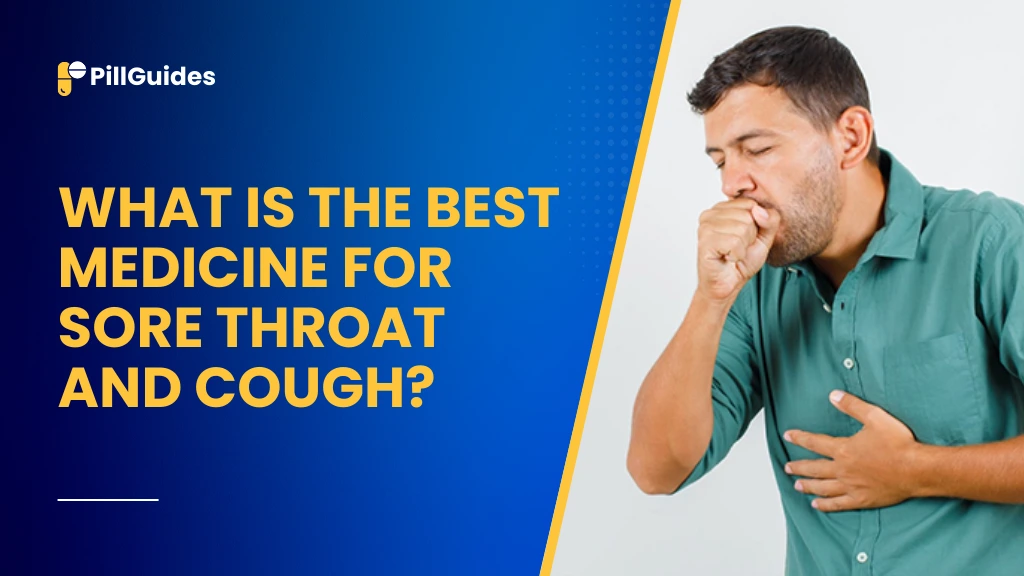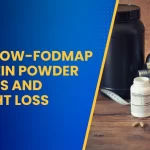A sore throat, especially a persistent cough can be very disruptive, affecting your day-to-day life and your general well-being. It is important to solve such symptoms with the right approach because they usually result from common infections, allergies, and environmental factors. In this article, we provide the best medicines, and natural remedies as well as prevention tips to help you manage or get rid of a sore throat and a cough. Come the end you will be equipped with all the information necessary to make better decisions for future relief.
Understanding the Causes of Sore Throat and Cough
Pain or inflammation in the throat is called a sore throat, caused by infections, dryness, or irritants. A cough is a reflex of the throat and respiratory tract that is designed to remove mucus, irritants, or foreign particles.
Common Causes:
- Viral Infections: The common cold, flu, or COVID.
- Bacterial Infections: Examples would include strep throat, which is caused by Streptococcus bacteria.
- Allergies: A reaction to dust, pollen, or pet dander.
- Environmental Irritants: Chemicals, smoking, or air pollution.
- Acid Reflux: Stomach acid that irritates the throat.
Best Over-the-Counter (OTC) Medicines for Sore Throat and Cough
OTC medicines are often things first to relieve the situation. Here’s a breakdown of the most effective options:
1. Throat Lozenges and Sprays
- Cepacol or Strepsils give a soothing effect by thickening or lubricating the throat.
- Throat sprays filled with ingredients like benzocaine or phenol quickly provide comforting relief of pain and irritation.
2. Cough Suppressants
- Dextromethorphan in Delsym or Robitussin is used for suppressing dry, unproductive coughs.
3. Expectorants
- Mucinex contains guaifenesin which thins mucus, helping to expel it when you cough up mucus.
4. Pain Relievers
- Non-prescription NSAIDs such as ibuprofen (Advil), acetaminophen (Tylenol), or other agents that decrease inflammation and relieve throat pain include ibuprofen (Advil) or acetaminophen (Tylenol).
5. Decongestants
Medications such as pseudoephedrine or phenylephrine can relax nasal congestion, easing indirectly throat irritation.
Prescription Medications for Persistent Symptoms
For more severe cases, a doctor may prescribe:
- Antibiotics: Used as a treatment for bacterial infections like strep throat.
- Corticosteroids: They help to reduce inflammation in your throat.
- Codeine-Based Syrups: Such as severe, chronic coughs the reflex is suppressed and sleep quality is improved by these.
Natural Remedies for Sore Throat and Cough
If you don’t like chemicals and potions, then there are some natural remedies to help with the discomfort and speed up the healing process.
1. Honey
Honey is an old, proven remedy as it is a natural cough suppressant, it soothes throat irritation. Honey especially works well if you mix it with warm tea.
2. Saltwater Gargle
Steaming the throat with warming salt water can reduce throat swelling and kill bacteria. Flip water with half a teaspoon of salt and gargle twice daily.
3. Herbal Teas
Some teas, like chamomile, ginger, or licorice root can reduce inflammation and soothe the throat.
4. Steam Inhalation
Steam inhalation opens the nasal passages, reduces throat irritation, and loosens mucus. If you want to increase the effect, then add some essential oils like eucalyptus.
5. Hydration
Drinking warm, brothy, or herbal teas to keep the throat moist and less irritated keeps the throat hydrated.
Tips for Choosing the Right Medicine
If you have a dry or productive cough and a sore throat, think about that when choosing a medicine.
- For Dry Cough: Avoid dextromethorphan and other cough suppressants.
- For Productive Cough: They involve choosing guaifenesin and other expectorants.
- For Severe Pain: Choose NSAIDs or acetaminophen.
Prevention Tips for Sore Throat and Cough
It’s possible to reduce your risk of developing these symptoms using preventative measures.
1. Maintain Hygiene
- Always wash your hands with soap and water.
- Avoid touching your face and in particular, the mouth and nose.
2. Stay Hydrated
Drinking enough water throughout the day will help to keep your throat moist, decreasing the chance of becoming irritated.
3. Avoid Irritants
- Cut down on smoking and do not smoke near other people.
- Try to eliminate allergens such as dust and pollen in your house.
4. Use a Humidifier
A humidifier adds moisture to the air which prevents the dryness that can irritate the throat.
5. Boost Immunity
- Eat a well-balanced diet containing lots of vitamins and minerals.
- Do some exercise and enough sleep.
When to Seek Medical Attention
While most sore throats and coughs resolve within a week, you should see a doctor if:
- If symptoms exceed 10 days.
- The high fever or especially severe throat pain.
- Someone has difficulty breathing or swallowing.
- You see blood in your mucus or your saliva.
Lifestyle Changes to Reduce Sore Throat and Cough Frequency
Adopting healthy lifestyle habits can significantly reduce the occurrence of sore throats and coughs:
1. Strengthen Your Immune System
- There are some foods you should avoid and some foods that you should incorporate into your diet.
- Include citrus fruits, garlic, and ginger which are all immune-boosting foods.
2. Manage Stress
Chronic stress is bad for your immune system. Some relaxation techniques such as yoga, meditation, or deep breathing exercises.
3. Maintain Proper Ventilation
Make sure to have proper air circulation in your home to avoid heavy exposure to airborne irritants and allergens.
4. Limit Voice Strain
Do not speak or yell too much for long periods so the throat does not become irritated.
5. Avoid Sharing Utensils
Use personal utensils and cups and minimize the spread of the germs in case of flu season.
Making these small but quite important changes, it will bring benefits for your general condition and resistance to respiratory diseases.
Conclusion
A sore throat and cough are caused by a combination of the right medication, natural remedies, and preventive measures. Early treatment is vital whether you use OTC medicines like lozenges and cough suppressants, or natural remedies such as honey and herbal teas. If you have persistent or bad symptoms, see a doctor. Once you know what causes your COPD, you can take proactive steps and get relief and a good quality of life.
Disclaimer
This content is for informational purposes only and is not a substitute for professional medical advice, diagnosis, or treatment. Always consult your doctor for personalized care.
Read More: Canker Sore Treatment: Effective Solutions for Soothing Pain and Promoting Healing
FAQs What is the best medicine for sore throat and cough?
1. How quickly can you remedy a sore throat with a cough?
Lozenges, throat sprays, and natural remedies including honey and warm tea are a quick-fix combination.
2. Is a sore throat a reason to take antibiotics?
Not always. You only need antibiotics for bacterial, not for viral infections like strep throat.
3. Can a sore throat be cured with home remedies?
Home remedies like honey and saltwater gargles can reduce symptoms, but won’t cure the problem.
4. Can OTC cough syrups be used for children?
OTC cough syrups aren’t recommended for children under six. Before use, see a pediatrician.
5. What can I do to keep from getting sore throats over and over?
Prevention depends on good hygiene, staying hydrated and avoiding allergens or irritants.










